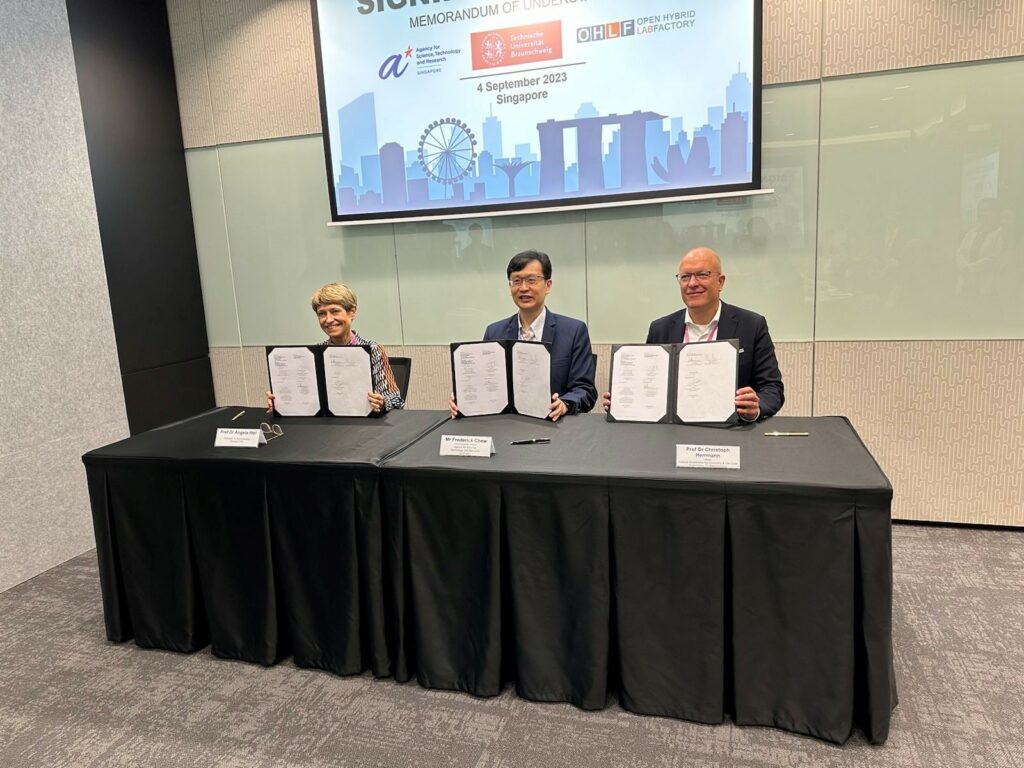
Signing Memorandum of Understanding TU Braunschweig, Open Hybrid LabFactory, Singapore Institute of Manufacturing Technology and Advanced Remanufacturing and Technology Centre
We are excited to announce the Memorandum of Understanding (MoU) was signed, marking a significant step forward in the fields of smart urban manufacturing, sustainability, and advanced production technologies.
This collaboration brings together Technische Universität Braunschweig, the Open Hybrid Lab Factory (OHLF), the Singapore Institute of Manufacturing Technology (SIMTech), and the Advanced Remanufacturing and Technology Centre (ARTC). The MoU was signed by Prof. Angela Ittel, President of TU Braunschweig, Prof. Herrmann, Head of Institute for Machine Tools and Production Technology and Board Member of OHLF, Dr. David Low ED of SIMTech and CEO of ARTC and Frederick Chew, CEO of A*Star.
The objectives outlined in the MoU are ambitious and forward-thinking, focusing on several key areas of mutual interest:
- Smart and Urban Manufacturing: This area will explore innovative approaches to manufacturing in urban settings, leveraging smart technology to enhance efficiency and reduce environmental impact.
- Industrial Symbiosis and Life Cycle Assessment: Emphasizing the importance of sustainable industrial practices, this focus area aims to create systems where waste from one process becomes input for another, minimizing environmental footprints.
- Circular Battery Production: With the rise of electric vehicles and renewable energy storage, developing sustainable methods for battery production and recycling is crucial.
- Distributed Smart Value Chain: This initiative aims to revolutionize the value chain by incorporating smart technologies, enhancing connectivity and efficiency across global networks.
- Sustainable and Resilient Supply Chain Management: In an era of global challenges, creating resilient and sustainable supply chains is more important than ever. This collaboration will explore innovative strategies to achieve this goal.
- Processes for Reverse Production: Including remanufacturing and recycling, this focus area is dedicated to developing efficient ways to repurpose and reuse materials, playing a crucial role in the circular economy.
This MoU is more than just a formal agreement; it represents a commitment to pioneering a more sustainable and technologically advanced future. By combining the expertise and resources of these leading institutions, we can expect significant advancements in these critical areas, contributing to a more sustainable and efficient world.
Share on Facebook Share on Twitter Share on Pinterest